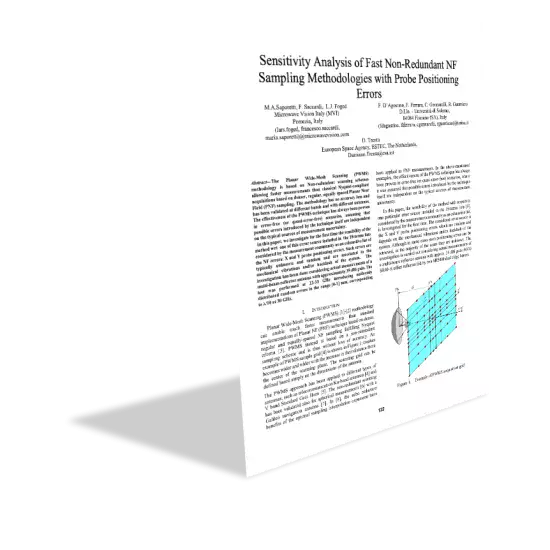
The Planar Wide-Mesh Scanning (PWMS) methodology is based on Non-redundant scanning schemes allowing faster measurements than classical Nyquist-compliant acquisitions based on denser, regular, equally spaced Planar Near Field (PNF) sampling. The methodology has no accuracy loss and has been validated at different bands and with different antennas. The effectiveness of the PWMS technique has always been proven in error-free (or quasi-error-free) scenarios, assuming that possible errors introduced by the technique itself are independent on the typical sources of measurement uncertainty.
In this paper, we investigate for the first time the sensibility of the method wrt one of this error source included in the 18-terms lists considered by the measurement community as an exhaustive list of the NF errors: X and Y probe positioning errors. Such errors are typically unknown and random and are associated to the mechanical vibrations and/or backlash of the system. The investigation has been done considering actual measurements of a multi-beam reflector antenna with approximately 35 dBi gain. The test was performed at 22-33 GHz introducing uniformly distributed random errors in the range [0-1] mm, corresponding to λ/10 at 30 GHz.

